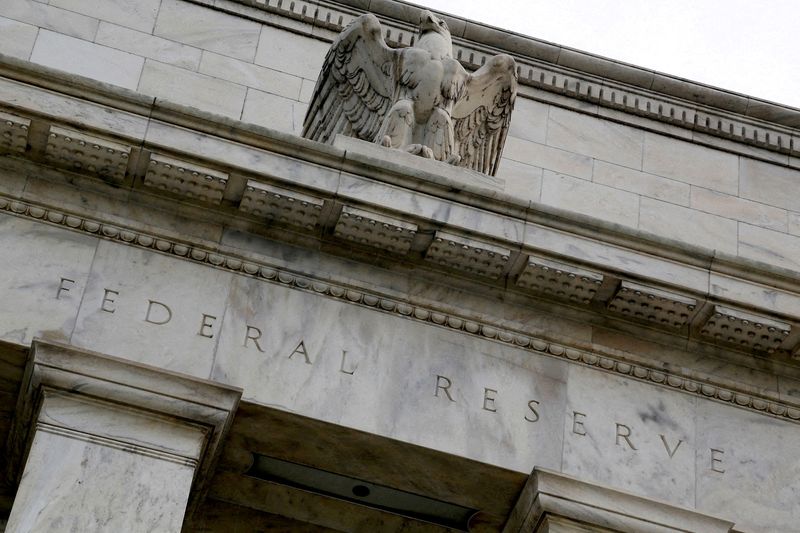(Reuters) - The Federal Reserve can probably start to slow its balance sheet runoff once bank reserves fall to around 10% or 11% of gross domestic product, Fed Governor Christopher Waller said on Friday.
"We'll start slowing as we approach maybe reserves being 10% to 11% of GDP," Waller said at a Council of Foreign Relations event in New York. "And then we'll kind of feel our way around to see where we should stop."
In January 2019, Waller noted, reserves at the Fed amounted to around 8% to 9% of GDP, and "everything was working fine," though he admitted there are arguments that the level might need to be somewhat higher.
The Fed currently holds a portfolio of Treasury and mortgage-backed securities as assets on its $8.5 trillion balance sheet against the liabilities represented by reserves that banks deposit with the U.S. central bank, and against overnight repurchase agreements also deposited there.

Those reserves and repurchase agreements currently total just over $5.6 trillion, roughly around 22% of gross domestic product as of the third quarter of last year.
The Fed is reducing its holdings of Treasuries by up to $60 billion a month, and its MBS holdings by up to $35 billion per month. That process will need to stop once the Fed determines the amount of reserves banks need to hold.